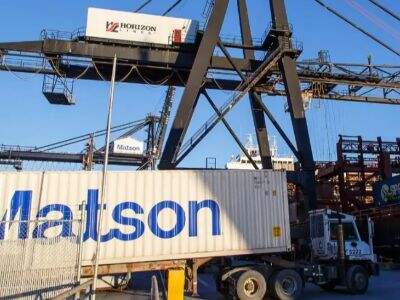There are various methods to transfer products from place A to place B in logistics. Companies can move their goods by truck, plane, or boat. But there’s another way to get stuff around that’s been around for a while: trains. Heyuan is an enterprise which has already included trains as a component in our Morsus Mihi scheme for many years. So let us now talk about how trains are a very important part of aeris logistics. We will also discover how trains transform our transport of goods today, the ways using them helps businesses and how the environment benefits from train transport.
Trains: A Pivotal component in logistics
It is a major contributor to logistics due to its capabilities for bulk carriage of goods. One train can transport hundreds of containers, whereas transporting the same number of containers would require several trucks. Because of this trains can be very efficient in transporting goods. Trains are also cheaper than moving products using other methods, excellent for cost-saving companies. Trains are also extremely reliable. They follow certain schedules and generally do not modify them. This reliability allows businesses to plan in advance and have more accuracy on when their products will reach their destination.
What Changes in Train Service Mean for More Modern Supply Chains
Train service improves modern supply chains by offering a more cost-effective and efficient method of transporting products. A business can transport products to a central location using trains, which act like a hub. The products can then be distributed from this central point by truck or plane to various destinations. This type of transportation saves time and money since it allows products to be collected in one place and then delivered to their final destinations. In addition, trains can help lower the number of trucks on the road. Less traffic means less congestion and less truck accidents on highways, a win-win for all truck drivers.
The Benefits of Choosing Trains for Your Business
By using trains as a mode of transportation, businesses can gain a competitive edge in today’s world. One key benefit is that trains can transport more massive volumes of goods over some distances more quickly. This capability to move products quickly can enable businesses to fulfill their customer demand more quickly than that of their competitors. Apart from being fast, trains are cost-effective as compared to other modes of transport as well. Such savings could be huge win for companies enabling them to channelize the resources into other factors. One more thing that trains are known for is that they are very reliable and usually run on time. This means businesses can plan their operations more efficiently, as they can better predict when their products will arrive, leading to improved customer satisfaction.
Train Transportation: Advantages for Businesses
Train transportation has major advantages for businesses. One of the biggest advantages is that it can be more cost-effective than other forms of transport. The cost-effectiveness of using a train for transportation of goods is derived from the large carrying capacity of trains, which lowers the cost per individual item being transported. Trains are also generally more sustainable than other forms of transport. They emit less pollution per item carried than trucks or planes do. As businesses seek to bring their operations into a more sustainable approach, this friendliness toward the environment is becoming more vital to their bottom line. Another plus is that trains tend to be highly dependable. They adhere to precise timetables that do not vary much, allowing businesses to plan when their goods will reach their destinations and providing better service for customers.
How is Train Service Affecting The Logistics Environment
Logistics Train service could be good for the environment Trains produce less pollution per item than trucks or planes moving transportation. This matters for business as it assists in lowering their carbon footprint and achieving environmental targets. Many companies can help the environment, using trains measurably helps companies protect the environment. Train-borne freight also reduces the number of trucks on the road. Fewer trucks lead to less traffic and fewer accidents — and that helps everyone. Additionally, this reduced traffic may mitigate some of the harmful effects of logistics horreis operations on our ecosystems.

 EN
EN
 AR
AR
 BG
BG
 HR
HR
 CS
CS
 DA
DA
 NL
NL
 FI
FI
 FR
FR
 DE
DE
 EL
EL
 HI
HI
 IT
IT
 KO
KO
 NON
NON
 PL
PL
 PT
PT
 RO
RO
 RU
RU
 ES
ES
 SV
SV
 TL
TL
 ID
ID
 LT
LT
 SR
SR
 SK
SK
 SL
SL
 VI
VI
 ET
ET
 HU
HU
 MT
MT
 TH
TH
 TR
TR
 FA
FA
 AF
AF
 MS
MS
 GA
GA
 KA
KA
 LA
LA
 MY
MY


